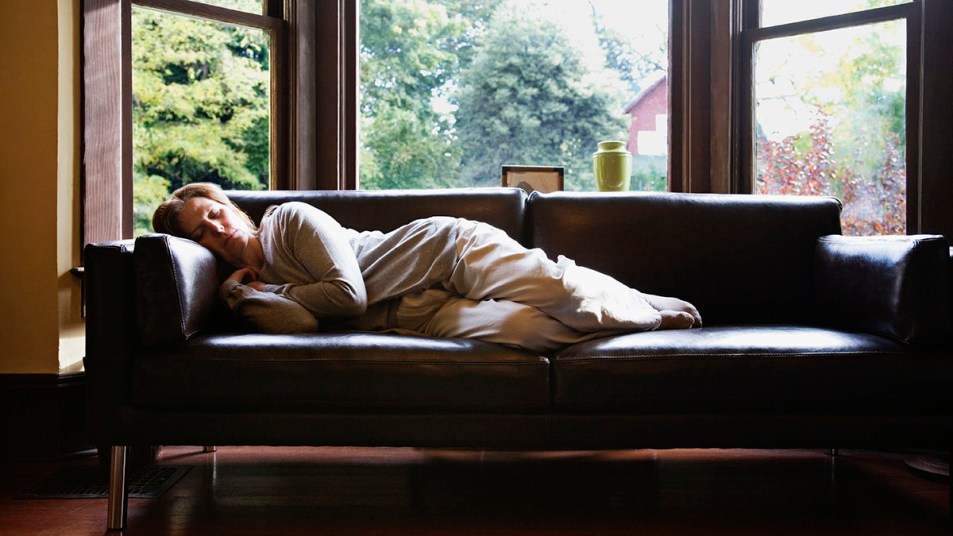This Is Why You Can’t Sleep When You’re Traveling — And What To Do About It

As much as I look forward to traveling, especially when it’s to see family during the holidays, I always dread how tired I’ll be from not sleeping well. I can never seem to truly rest when I’m anywhere except my own bed. I always thought it was just me being a light sleeper — and, let’s face it, high maintenance — but it turns out I’m not alone! Studies have found that most people have a hard time sleeping while traveling, and scientists say not being able to sleep when you’re somewhere new is actually a normal brain response.
Normal or not, being tired can really put a damper on the holidays. When I don’t get a good night’s sleep, I wake up in a bad mood — which means I don’t have much patience with my relatives as we do all kinds of lovely (yet stressful!) holiday activities. Hoping to avoid the problem this year, I looked into what’s behind the phenomenon of poor sleep during travel — and how we can turn it around and get better rest on the road.
The “First-Night Effect”
Scientists first discovered what they call the “first-night effect” while running sleep studies and observing that most participants had trouble sleeping the first night. Subjects not only took longer to fall asleep, they had trouble staying asleep. Why? “Our subconscious brain knows that’s not our normal place, so there’s probably a little bit of heightened awareness,” Daniel L. Rifkin, MD., told MindBodyGreen.
When we enter into a vulnerable state (sleep) in an unknown place, our brains are subconsciously looking for possible threats. That’s why things like the faintest noise or the smallest light can keep you awake in a hotel room. Your brain is actually trying to do you a favor by keeping you awake, in case there’s any danger.
While that would be helpful if we were actually in danger, it’s more of a hassle when you’re traveling and trying to get some sleep. And to make it worse, Dr. Rifkin says you’ll also likely miss out on the first all-important REM cycle once you do fall asleep, since your brain is still on alert.
How to Sleep Better During Travel
So, how do we overcome these not-so-helpful instincts when we’re travelling, and make sure we’re rested for the fun plans we have the next day? Rifkin recommends that people stick to their bedtime routines to sleep better during travel, especially that first night. As tempting as it may be to stay up talking to loved ones you haven’t seen in a while, try to go to bed at your usual time (or earlier) so your body understands that it’s time to sleep.
You can also bring some items from home that can trick your brain into thinking it’s safe. A favorite essential oil (lavender is a great one), your preferred pillow, or any accessories (like an eye mask) that you use at night can help you feel more at ease. Rifkin also recommends taking a few deep breaths and visualizing your bedroom at home when trying to fall asleep.
If these tricks don’t work, and a lack of sleep is really affecting you, give yourself a bit more time to sleep in the next morning. That way, your body has a chance to catch up on missed REM cycles.
Getting better sleep during travel is all about making yourself as comfortable as possible. And if you truly can’t sleep, calm your brain down with some deep breaths. You’ll feel more rested the next morning!
















